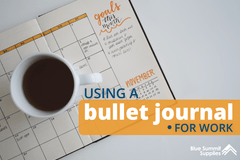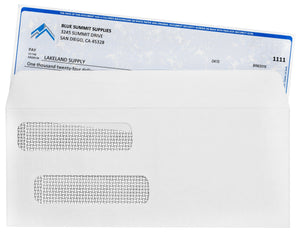Are you ready to quit or resign from your current job? Whether you’re leaving on good terms or due to a toxic work experience, it’s important to remain professional throughout the resignation process. In this post, we’ll share guidelines on how to resign professionally, including how to professionally quit a job under toxic circumstances, how to leave a job immediately, and how to effectively give two weeks’ notice.
How to Resign Professionally

1. Give Adequate Notice
If you’re wondering how to leave a job on good terms, the very first step is to give adequate notice to your employer of your decision to leave. This will ensure you don’t leave them in the lurch or derail the rest of your team.
Your current employer may be contacted by your potential future employers for reference or background checks when you apply for jobs. Even if you leave them off of your resume, you never know who you may have in common in your professional network.
Give them another reason to say positive things about you by notifying them at least two weeks before your last day. At least two weeks’ notice will give your employer and managers time to transfer your work to your coworkers or find a replacement. If you trust your employer and your role is more difficult to fill, you may consider giving more notice to aid in the transition process.
Two weeks is the standard amount of notice to give in the US and many other countries. This is likely because many employers disburse the payroll every two weeks. While standard, it is usually not legally required unless it’s included in your employment contract or union agreement. Most states have “at-will” employment, which means an employee can resign at any time for any reason, and likewise, an employer can terminate an employee at any time for any reason (except for discrimination or retaliation).
This means that if you need to leave right away, you may do so, though it is considered less professional and may reflect poorly on you in the future. Likewise, your employer is not required to give you notice of their decision to let you go.
It is possible that when you notify them of your decision to leave in two weeks, they may have you leave that day, especially if your role is easy to fill. An employer may also make the decision to have you leave immediately if you work with sensitive information or if you are leaving under contentious circumstances.

2. Resign In-Person, If Possible
Resigning in person is more professional than resigning over the phone, in an email, or in a letter. It can be an emotionally-charged conversation, with many questions to be answered, but it’s a conversation that needs to be had. You might even compare it to breaking up with your significant other! In-person is best, even though a text would be much easier. 🙈
Be respectful of the organization you are leaving by resigning face-to-face. Make an appointment with your manager and make sure you tell them before any other coworkers so that they don’t find out the news from anyone other than you. You’ll want to practice what you will say in advance to avoid saying anything negative or in haste that may affect your reputation and come back to haunt you down the line.
While it’s best to have the conversation in person, you should immediately follow up with a resignation letter or email that outlines all of the information discussed so that there is no confusion about what was said.

3. Offer to Provide Transition Materials
Providing transition materials will make it easier for coworkers to take over your responsibilities and to train new hires. Make a list of your daily, weekly, and monthly responsibilities, and have your manager review it to see if you have left anything out. To help you remember, look back on your most recent role description.
It’s helpful to include examples of work you have produced as well as a list of ongoing projects you are currently working on. Be clear about what you will be able to complete within the notice you are giving and what projects will need to be passed off to someone else.
Depending on the time you have available, you may also consider offering to help train the person who will replace you.

4. Provide Feedback on Why You Are Leaving
While you don’t have to let your employer know why you are leaving, it is generally appropriate to let them know if you are leaving your job in order to go back to school or relocating because of family obligations.
If you love your job and it’s hard to leave, you should certainly tell your employer it has nothing to do with them and that you enjoyed working there! However, it is not advisable to provide negative, frustration-fueled feedback about your employer or fellow employees when resigning, especially if you are taking a job with a competitor.
If you don’t want to say why you are leaving, simply say you are leaving for personal reasons—and don’t elaborate. If you are asked to do an exit interview, keep it simple and straightforward by giving facts rather than opinions and by being positive, fair, and honest.
If you have a strong, trusting relationship with your manager, you may choose to provide thoughtful, constructive feedback aimed at helping them and your team succeed. The feedback should come from a place of positivity and also include what went well throughout your employment.
How to Resign From a Toxic Job
There are a few best practices on how to resign from a toxic job. While you may have negative feelings toward your employer or coworkers, it’s important to stay respectful and neutral. While it may feel good to say exactly how you feel, anything negative you say may come back to hurt your reputation in the future.
If you are resigning from a bad situation, set strong boundaries about your last day, the work you are able to complete, and how much time you can dedicate to training someone new or creating transition materials. You also do not have to provide a reason for leaving. Keep it simple and don’t say anything unnecessary about your decision.
If you have been subjected to discrimination or retaliation, it’s important to keep as many records as you can. Save any communications or documents as evidence of what occurred in your workplace, and make sure to follow up all in-person conversations with email summaries.
💡Learn more in our article: Discrimination at Work: Signs You Need a Workplace Discrimination Attorney.

How to Quit Your Job Immediately
There are many circumstances in which it’s beneficial to know how to quit your job immediately. These include if you have a family emergency, you have another job offer that must begin immediately, your workplace is hostile, or your health or safety are at stake.
There may be consequences for quitting without notice. It may negatively impact your professional reputation and future employment opportunities. So no matter your reason for leaving, try to be as courteous as possible. Make sure to deliver a professional email or letter of resignation, including your last day of work, future contact information, and any questions you have about receiving your last paycheck or any outstanding benefits.
If you are resigning for family obligations, your employer may be sympathetic and won’t hold it against you professionally. Be sure to see if you qualify for family or medical leave, and it may help to take a few sick days while you figure out your plan of action.
If you are quitting so that you can start another job immediately, you may not want to tell your employer this, and you do not have to—though they may find out eventually. Review your contract and see what the consequences are for quitting without notice. At the least, you likely cannot expect a positive recommendation, but there may be other consequences, such as not being eligible for payout of any accrued holiday and leave time.
If you are leaving due to a toxic work environment or to protect your health or safety, a positive recommendation may not be likely anyways, so be sure to prioritize your immediate safety and leave as quickly as possible.
How to Give Two Weeks’ Notice
Giving two weeks’ notice can feel intimidating, but there are simple things you can do to prepare. Following these steps will make the resignation process as professional and positive an experience as possible for everyone involved.
- Schedule a meeting with your manager in person, if possible.
- Practice what to say when you resign so that you don’t say anything in haste that will come back to haunt you later.
- Prepare what you will say if you are asked to stay longer or if the employer tries to entice you to stay with a raise or other benefits.
- Be clear about your last day, but be prepared to be asked to leave immediately.
- Have a transition plan prepared, including projects you will finish up and those that should be handed off to coworkers.
- You may choose to offer to train a new hire or offer other help during the transition period.
- Ask any questions you have about your final paycheck, benefits, personal items you need from the office, and any company property you need to return.
- Express gratitude for the opportunity and your experience with the employer.
- Follow up in an email or letter with your last day, contact information, and anything else you discussed so that there is no confusion about what was said.
Two Weeks Notice Template
Dear [Name]
This [letter/email] represents my two weeks’ notice at [company name].
[Provide an optional reason for resigning (if you can remain positive and feel comfortable disclosing it.)]
Thank you for the opportunity to work at [company name]. It has been my pleasure getting to know the team and learning from each of you.
I am available to conclude my two weeks beginning today, [date]. I am available to prepare transition materials for my team and any replacement you may require. Please let me know if you have any questions or if there’s anything else you need from me during this transition.
[Your name]
Career Development From Blue Summit Supplies
💡 Professional Development Goals: Examples and How to Get Started
💡 When and How to Make a Career Transition
💡 What is a Job Coach? And Other Career Coaching Questions Answered
Do you want to build your professional development and advance your career? Follow our office supplies blog for the latest career advice, industry trends, office strategies, and more.
If you have any questions or want to talk to someone about office supplies, leave a comment, send us an email, or connect with us on social media.
 For more informative articles about office supplies, subscribe to our email newsletter!
For more informative articles about office supplies, subscribe to our email newsletter!
Never fear, you won't begin receiving daily sales emails that belong in a spam folder. Instead, we promise a fun weekly roundup of our latest blog posts and great finds from across the web. And if you lose interest, it's always easy to unsubscribe with a single click.










